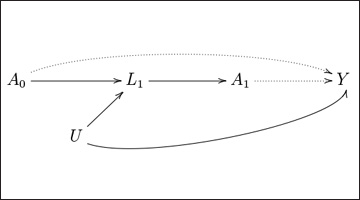Within pharmacoepidemiology research, secondary research using databases and registries presents both opportunities and limitations. We understand the issues and can help you determine if it is feasible and effective to use existing data sources, and if so, which data source(s), to answer your regulatory real-world evidence, epidemiology, and/or drug safety questions. Database research can help you gain insights on:
- Medication, device, vaccine, and other treatment safety profiles
- Disease prevalence and public health impact
- Event rates
- Patient characteristics
- Treatment patterns and drug utilization
- Medication adherence and persistence
- Comparative effectiveness and value of alternative treatments
- Validity of electronic database information to identify specific disease endpoints
Our experts have conducted database studies for pharmaceutical clients at the request of the US FDA, EMA, and other national agencies in North America, Europe, and the Asian Pacific region. In addition, our experts have conducted studies funded by the EMA and the US FDA.
Select the Best Data Source
We have conducted research in populations covered by electronic medical records, administrative claims, and registries for several decades. For each project we identify and access the most appropriate database(s) for the study. Moreover, we develop and validate exposure, outcomes, and covariates through structured coding of data (e.g., diagnosis codes), unstructured data (e.g., clinical notes), and combinations of both, appropriate to the database(s). We have experience working with the following data sources, directly or through collaborative research partnerships with expert-knowledge research centers:
| Country | Database |
|---|---|
| Canada | Saskatchewan Health |
| Denmark | Danish National and regional registries* |
| France | French National Healthcare System (SNDS)* |
| Germany | German Pharmacoepidemiology Research Database (GePaRD)* |
| Italy | Regional or local health unit database of Tuscany, Friuli-Venezia Giulia, Caserta* |
| Japan | Japan Chronic Kidney Disease Database (J-CKD-DB) |
| Netherlands | PHARMO Institute Data* |
| Nordic Countries | Scandinavian Sarcoma Group |
| Spain | Aragon Institute of Health Sciences (IACS)* Information System for the Development of Research in Primary Care (SIDIAP)* Valencia Health System Integrated Database (VID)* |
| Sweden | Swedish National Registries* |
| United Kingdom | Clinical Practice Research Datalink (CPRD) The Health Improvement Network (THIN) Scottish Prescribing Information System * |
| United States | Healthcare (formerly HealthCore) Integrated Research Database (HIRD)* Henry Ford Health System* IBM MarketScan Commercial Claims and Encounters (CCAE) database IBM MarketScan Health and Productivity Management (HPM) database Integrated Health Care Information Services (IHCIS) Managed Care Benchmark Database* Kaiser Permanente of Northern California* Kaiser Permanente of Southern California* Kaiser Permanente of Washington* LifeLink (formerly PharMetrics) Medicare and Medicaid administrative claims National Death Index (NDI) National Center for Health Statistics surveys Optum* Regenstrief Institute* Surveillance, Epidemiology and End Results (SEER) cancer registries SEER-Medicare linked data Statewide cancer registries in the US |
* We work collaboratively with expert-knowledge research centers with protocol-based access to these data sources to design studies and specifications for analyses. Analyses are conducted locally.
Coordinating Center for Studies using Multiple Databases
Increasingly, RWE studies require a sample size exceeding that available from a single database and experience in patient populations across multiple countries—and if you have such a need, we can help. Our project experience includes serving as a coordinating center for studies that utilize multiple research partners and databases. For example, we coordinated research across 11 US databases using a data model based on the US Sentinel Network project. We are part of the VAC4EU and SIGMA research consortia. Other multi-database projects can be found among studies in the HMA-EMA Catalogue of RWD Studies.














